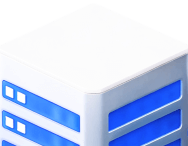SSS
What is a proxy in simple words?
Proxies are an intermediary between your device and the Internet. They hide your real IP address by replacing it with another one, which helps you maintain anonymity, bypass blockages, and speed up access to resources.
What is the difference between IPv4 and IPv6 proxies? Which is better?
IPv4: 32-bit addresses (e.g. 192.168.1.1), limited in number, supported by most sites.
IPv6: 128-bit addresses (e.g. 2001:0db8:85a3::7334), there are more of them, cheaper, but not all sites support them.
What to choose: IPv4 for versatility, IPv6 for economy and modern tasks.
What is the difference between HTTP(S) and SOCKS(4,5) proxy protocols? Which is better?
HTTP(S): Works only with web traffic (surfing, parsing, APIs).
SOCKS(4,5): Supports any type of traffic (web, games, video, P2P).
What to choose: HTTP for web, SOCKS5 for universal use.
What are public/free proxies?
These are proxies available to everyone for free. They are often slow, unreliable and insecure because they can be used by many users at the same time. Using such proxies is suitable only for simple tasks where speed and privacy are not important.
What are packet proxies?
Batch proxies are a group of proxies leased at once, such as 10, 50 or 100 IP addresses. They are suitable for bulk tasks, such as parsing or promotion, and allow you to spread the load across multiple addresses.
What are one-handed proxies and private/individual/exclusive/elite/dedicated proxies?
These are proxies that are leased by one user. No one else can use them during the rental period. They provide high speed, stability and privacy. Suitable for sensitive tasks such as working with accounts or payment systems.
What is the difference between IPv4 and IPv6 proxies? Which is better?
IPv4 use 32-bit addresses (e.g. 192.168.1.1), there are a limited number of them, and they are supported by most sites. IPv6 are 128-bit addresses (e.g. 2001:0db8:85a3:0000:0000:8a2e:0370:7334), there are many more of them, they are cheaper, but they are not suitable for all sites. If you want maximum compatibility, choose IPv4. To save money and work with modern services, IPv6 will do.
HTTP and SOCKS5 proxies? Which is better?
HTTP proxies work only with web applications (HTTP/HTTPS) and are ideal for surfing, parsing, and working with APIs. SOCKS5 supports all types of traffic, including video, P2P and online gaming. If you're only working with the web, choose HTTP. For versatility, SOCKS5 is better.
How do you know if the proxies are working?
To check proxies, use special services (for example, proxy-checker) or test them in your browser by setting proxy settings. A working proxy allows you to successfully load pages or connect to the desired resource.
Proxies are blocked by the site, what to do?
If the site has blocked your proxies, try:
Change the IP address of the proxy.
Use a proxy with a different type (for example, SOCKS5 instead of HTTP).
Set up proxy rotation.
Apply anti-detect browsers to minimize blocking.
Check if there is no VPN/proxy ban on the site.
If the problem persists, contact your proxy provider.
Ortaklık programımıza katılın
Çektiğiniz müşterilerin her ödemesinden %10 kazanın.
Daha fazla bilgi edinin
;)
